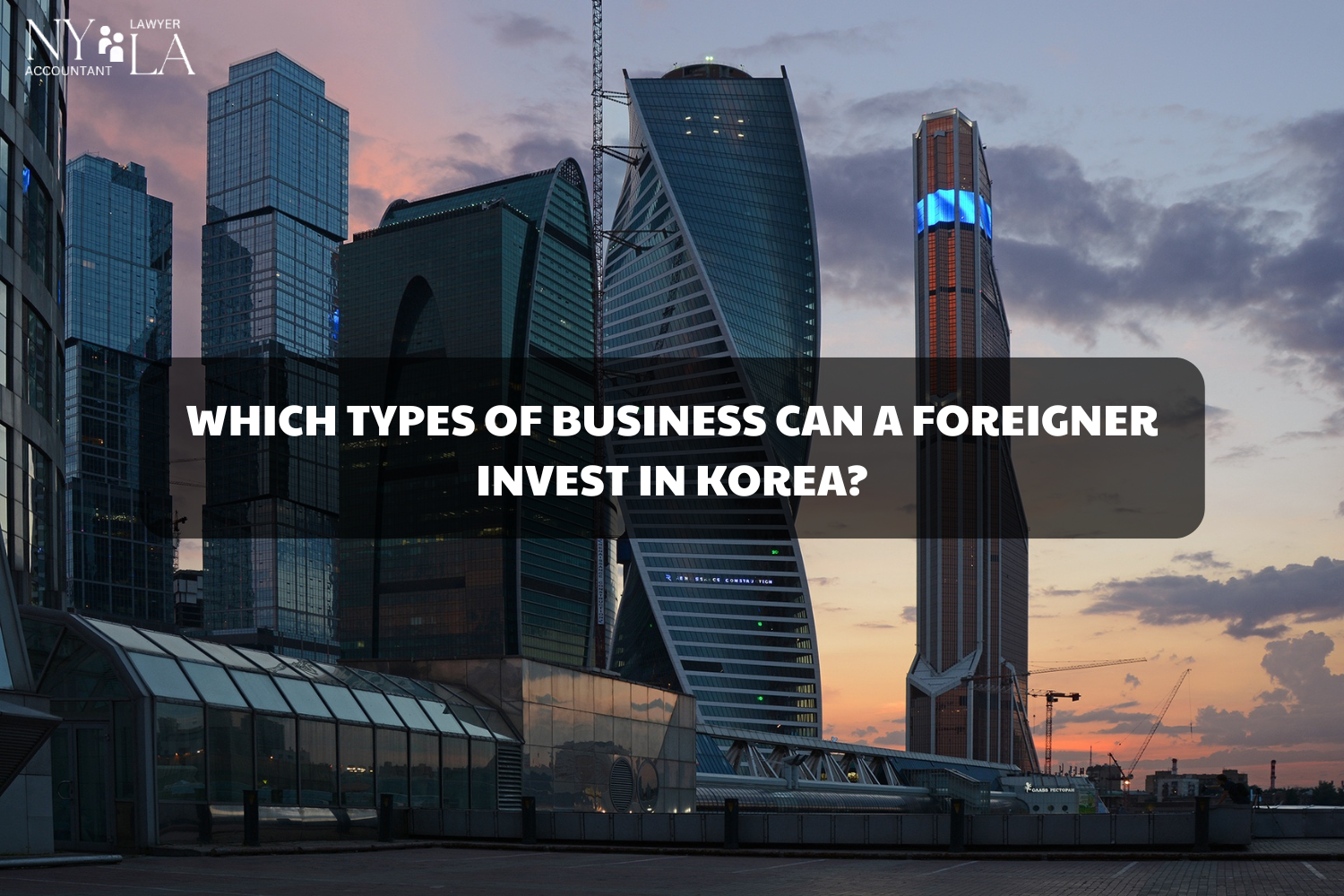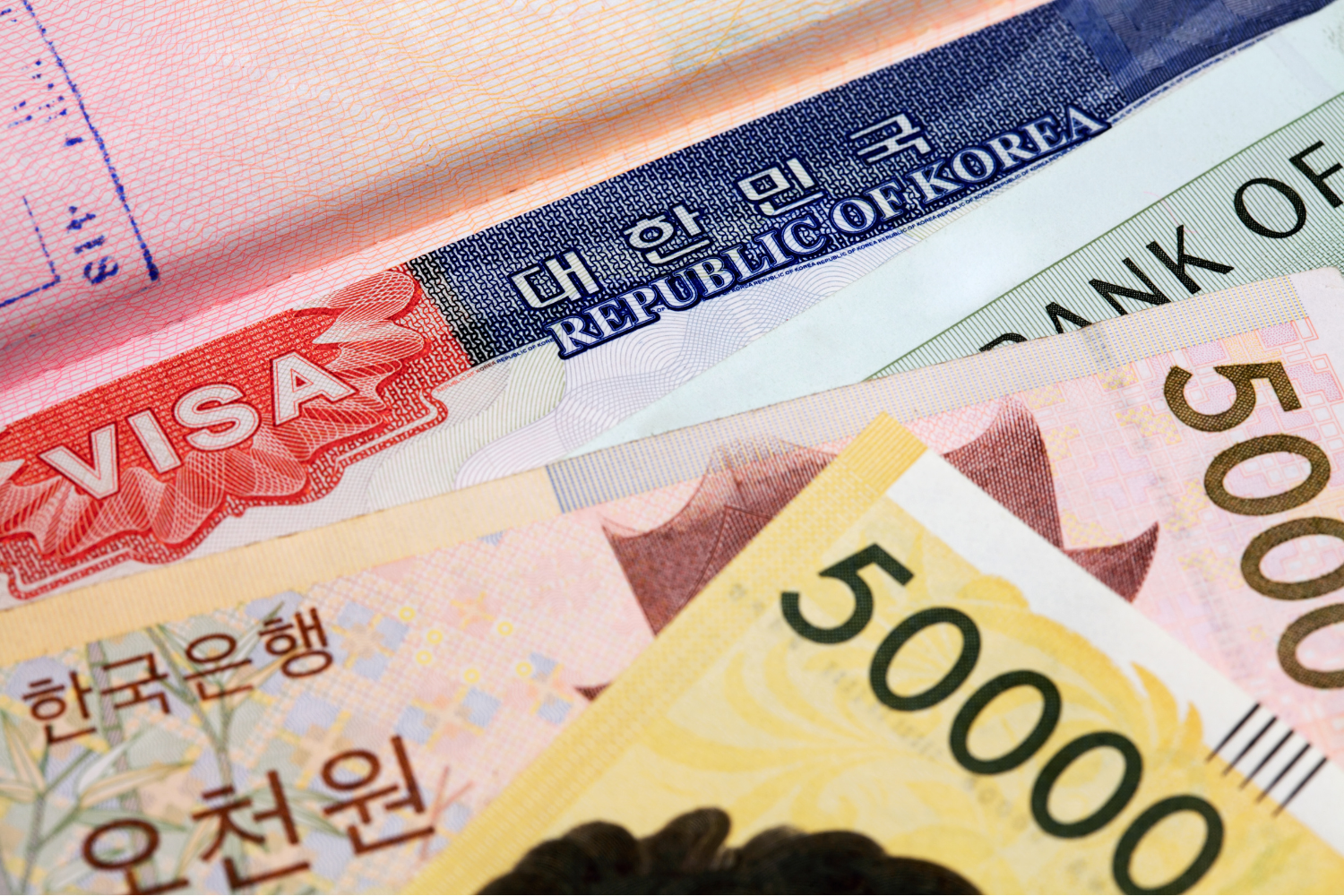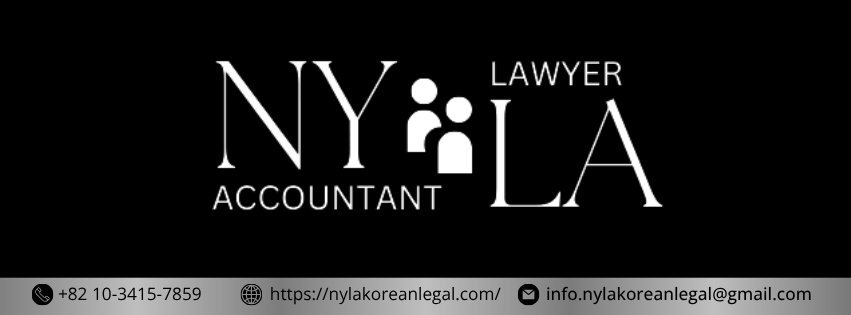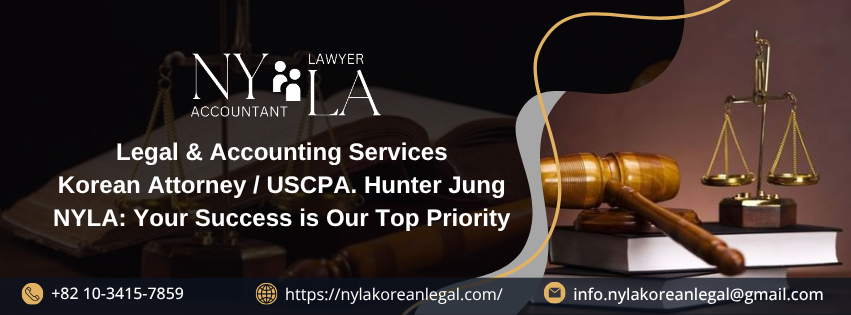South Korea, a dynamic and thriving economy in East Asia, has long been a hub for foreign investment. With its strategic location, highly skilled workforce, and advanced infrastructure, South Korea offers numerous opportunities for foreign investors. However, like any other country, there are regulations in place to govern which types of businesses a foreigner can invest in. In this article, we will explore the different types of businesses foreign investors can engage in, the restrictions, and the specific conditions they must meet to invest in South Korea.
Summary
- 1. Introduction to Foreign Investment in South Korea
- 2. Types of Business Foreigners Can Invest in South Korea
- 3. Restricted Cases in Foreign Investment
- 4. Business Lines That Exclude Foreign Investment
- 5. Business Lines That Ban and Restrict Foreign Investment
- 6. Specific Conditions for Foreign Investment in South Korea
- 7. Conclusion: Foreign Investment Opportunities in South Korea
- 8. About NYLA – Korean Legal Office
1. Introduction to Foreign Investment in South Korea
Foreign investment in South Korea plays a vital role in the country’s sustained economic growth. Over the years, the South Korean government has actively promoted foreign investment in South Korea by offering various incentives and establishing favorable policies. These efforts have helped boost key industries such as technology, manufacturing, and services.
South Korea offers a broad range of opportunities for foreign investors. While the government is open to international capital, there are specific legal frameworks that define the limits and permissions for foreign investment in South Korea. These include considerations for national security, public health, cultural preservation, and environmental sustainability.

2. Types of Business Foreigners Can Invest in South Korea
The landscape of foreign investment in South Korea is diverse, giving investors access to multiple profitable sectors. Below are some of the most promising industries:
-
Technology and Electronics: South Korea is globally recognized for its advancements in technology, home to giants like Samsung and LG. Foreign investors in South Korea can participate in R&D, smart manufacturing, and next-generation tech solutions through direct investment.
-
Manufacturing: With a highly developed manufacturing infrastructure, South Korea is a leader in shipbuilding, automobile production, and machinery. The government encourages foreign investment in South Korea’s manufacturing to remain competitive globally.
-
Services: From fintech to healthcare and education, the service sector presents a wealth of opportunity. Foreigners interested in foreign investment in South Korea can engage in consulting, e-learning platforms, and digital healthcare services.
-
Retail and Consumer Goods: The demand for global brands is increasing among South Korean consumers. Investors can launch retail outlets or form partnerships with local firms to distribute imported products.
-
Real Estate: Especially in urban centers like Seoul, foreign investment in South Korea’s real estate sector is on the rise. Investors can explore commercial properties, office spaces, and regulated residential developments, all while complying with local property laws.
3. Restricted Cases in Foreign Investment
While foreign investment in South Korea is welcomed across most sectors, there are notable restrictions in place to protect national interests and maintain regulatory integrity. These restrictions are important for foreign investors to understand before entering the Korean market.
-
National Security Restrictions: Certain areas are off-limits for foreign investment in South Korea when they are deemed to pose a risk to national security. This includes investments in defense, sensitive technologies, or industries related to military infrastructure. Any activity that could compromise the nation’s safety is strictly prohibited.
-
Public Health and Environmental Concerns: Foreign investment in South Korea is restricted in sectors that may negatively impact public health, safety, sanitation, or environmental preservation. Additionally, investments that go against Korean morals, social customs, or cultural values are not allowed. For instance, industries known to cause pollution or social disruption are highly regulated.
-
Violation of Local or International Laws: Any foreign investment in South Korea that contradicts national laws or breaches international agreements and sanctions is prohibited. This includes investing in sectors explicitly banned by Korean law, or engaging in business practices that violate trade regulations or ethical standards.
By clearly understanding these restrictions, investors can make informed decisions and ensure their foreign investment in South Korea remains legally compliant and sustainable in the long term.

4. Business Lines That Exclude Foreign Investment
While foreign investment in South Korea is generally encouraged, certain business sectors remain strictly off-limits or are heavily regulated to protect national interests and public institutions. Foreign investors must be aware of these exclusions before planning their market entry.
-
Postal Service and Central Banking: These sectors are considered vital components of national infrastructure. As such, foreign investment in South Korea is prohibited in postal services and the central banking system, including functions such as currency issuance and monetary policy management.
-
Legislative, Judicial, and Administrative Bodies: Foreign entities are not permitted to invest in South Korea’s core government functions. This includes the legislature, courts, administrative bodies, and diplomatic missions. These institutions are closely tied to national sovereignty, and thus not open to foreign capital.
-
Educational Institutions: Foreign investment in South Korea is restricted in various levels of public education. Foreigners are prohibited from investing in kindergartens, elementary schools, middle and high schools, universities, graduate schools, and special education facilities. These restrictions exist to preserve national educational standards and cultural values.
-
Religious, Political, and Labor Organizations: Investment by foreign entities is also not allowed in organizations related to religion, politics, and labor movements. These sectors are seen as essential to maintaining domestic social stability and are therefore excluded from foreign participation.
Understanding these exclusions is crucial for any entity planning foreign investment in South Korea, as violating these regulations can lead to legal issues and business setbacks.
5. Business Lines That Ban and Restrict Foreign Investment
While most industries are open to foreign investors, there are specific sectors that either ban or restrict foreign participation. These include:
- Nuclear Power Generation: Foreign investment in nuclear power generation is prohibited due to the sensitive nature of the industry.
- Radio and Terrestrial Broadcasting: Foreign investors are restricted from investing in radio and terrestrial broadcasting, which are considered to be critical to national sovereignty and information security.
- Certain Energy Sectors: In the energy sector, foreign investment is allowed, but there are limitations on the percentage of foreign ownership. For instance, in power generation plants, foreign ownership is limited to 30% of domestic facilities.
- News Agencies: Foreign investment in news agencies is limited, with a maximum ownership threshold of 25%. This restriction ensures that the media sector remains primarily under local control.

6. Specific Conditions for Foreign Investment in South Korea
In certain fields, foreign investors are allowed to invest, but with specific conditions that must be met. These conditions vary depending on the type of investment and the industry. Some of the key conditions include:
- Foreign Investment Rate: In some sectors, the foreign investment rate is capped at 49%, 30%, or 25%, depending on the level of control the South Korean government wishes to maintain. These restrictions apply to industries such as livestock farming, power generation, and news agencies.
- Minimum Investment Requirements: In some cases, foreign investors are required to meet minimum investment amounts in order to gain entry into certain industries. For example, the government may require that foreign investors contribute a certain amount of capital to establish a business in the country.
- Government Approval: In some cases, foreign investment may require approval from South Korean authorities, particularly in sensitive sectors. The approval process may involve a review of the investor’s background, the proposed investment, and its potential impact on the local economy and society.
7. Conclusion: Foreign Investment Opportunities in South Korea
South Korea remains one of the most attractive destinations for foreign investment in Asia, thanks to its strong economy, highly educated workforce, and business-friendly policies. Foreign investors have access to a wide range of industries, from technology and manufacturing to services and real estate. However, there are certain restrictions and conditions that investors must be aware of, particularly in sensitive sectors related to national security, public health, and cultural preservation.
Foreign investors who wish to enter the South Korean market must carefully navigate these regulations and ensure that they comply with local laws. By doing so, they can unlock significant opportunities in one of Asia’s most advanced and dynamic economies.
With its robust infrastructure, technological advancements, and strategic location, South Korea offers an excellent environment for foreign investment. If you’re considering investing in South Korea, understanding the regulations and the industries that are open to foreign participation will be key to your success in the country.
8. About NYLA – Korean Legal Office

■ NYLA – Your Trusted Legal Partner in Korea
At NYLA, we understand that the success of foreign businesses in Korea requires not only a solid business strategy but also reliable legal support. With a team of experienced Korean attorneys and legal professionals, NYLA provides tailored legal services for companies, investors, and individuals operating or planning to establish a presence in Korea.
We support our clients throughout the entire business journey with comprehensive services, including:
- Legal consultation on company establishment, taxation, and immigration;
- Advice on commercial real estate, franchising, and product distribution;
- Support in human resources, marketing, and business strategy.
In addition to legal advisory, NYLA also represents clients in civil litigation cases related to business, labor, marriage, family, and inheritance to ensure their rights and interests are fully protected.
■ Contact NYLA

If you’re a foreign business or individual looking for a reliable legal partner in Korea, NYLA is here to help. We are committed to delivering effective, practical, and personalized legal solutions for every client.
With a proven track record of assisting hundreds of international clients, our team is equipped to help you navigate complex legal challenges—whether it’s commercial disputes, contract issues, or foreign investment guidance.
Don’t let legal matters hold you back. Let NYLA be your trusted guide in the Korean market.
■ Get in touch with NYLA for expert legal support
| Website: https://nylakoreanlegal.com/
FB: https://www.facebook.com/nyla.koreanlegal Tiktok: https://www.tiktok.com/@nylakoreanlegal Youtube: https://www.youtube.com/@NYLA-xd8qx Email: info.NYLAkoreanlegal@gmail.com SĐT: +82 10-3415-7859 |
 |






















































